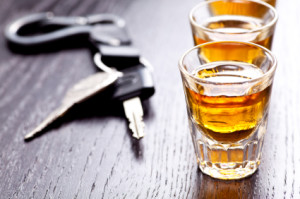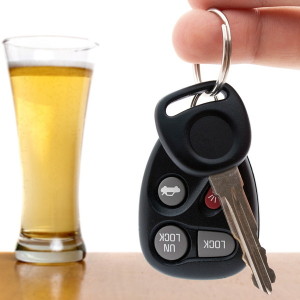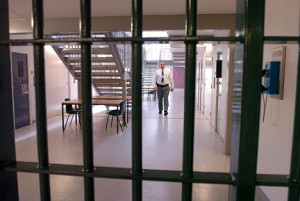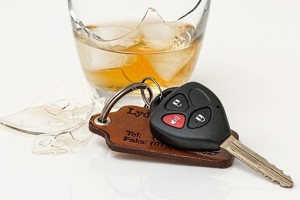 Can the State go to trial without the defendant being present in court? Last month a Washington County man was convicted of possession with intent to distribute cocaine, and driving under the influence after a traffic stop in the early morning hours of April 8, 2021. Normally this type of case would not be especially newsworthy for the Blog but for one glaring detail; the defendant was tried and convicted by a jury despite not being present in court. In legal terms the defendant was tried in absentia, simply meaning he was absent from court but the judge decided to move forward with the case anyway. The stop and the trial occurred in Cumberland County, Pennsylvania, which is just north of the man’s hometown of Hagerstown on Interstate 81. According to a press release by the District Attorney’s Office the man was traveling southbound toward Maryland on I81 and nearly collided with a tractor trailer. After making contact with the Hagerstown man, Troopers noticed marijuana in plain view in the vehicle and observed signs of impairment. The defendant then allegedly admitted to drinking alcohol and smoking marijuana before driving. Upon being arrested for DUI Troopers recovered a plastic bag with a white powdery substance that the defendant was trying to conceal in the front bumper of the vehicle. Chemical analysis revealed that the substance was in fact cocaine, weighing nearly 75 grams. The amount of cocaine apparently was enough for the jury to conclude that it was not for personal use, but rather that he possessed the drug with intent to distribute. Sentencing is set for October 4 of this year, and it remains to be seen whether the defendant will show.
Can the State go to trial without the defendant being present in court? Last month a Washington County man was convicted of possession with intent to distribute cocaine, and driving under the influence after a traffic stop in the early morning hours of April 8, 2021. Normally this type of case would not be especially newsworthy for the Blog but for one glaring detail; the defendant was tried and convicted by a jury despite not being present in court. In legal terms the defendant was tried in absentia, simply meaning he was absent from court but the judge decided to move forward with the case anyway. The stop and the trial occurred in Cumberland County, Pennsylvania, which is just north of the man’s hometown of Hagerstown on Interstate 81. According to a press release by the District Attorney’s Office the man was traveling southbound toward Maryland on I81 and nearly collided with a tractor trailer. After making contact with the Hagerstown man, Troopers noticed marijuana in plain view in the vehicle and observed signs of impairment. The defendant then allegedly admitted to drinking alcohol and smoking marijuana before driving. Upon being arrested for DUI Troopers recovered a plastic bag with a white powdery substance that the defendant was trying to conceal in the front bumper of the vehicle. Chemical analysis revealed that the substance was in fact cocaine, weighing nearly 75 grams. The amount of cocaine apparently was enough for the jury to conclude that it was not for personal use, but rather that he possessed the drug with intent to distribute. Sentencing is set for October 4 of this year, and it remains to be seen whether the defendant will show.
Although the defendant was arrested and prosecuted in Pennsylvania, the law regarding trials being held in absentia appear to be similar to the Maryland law. We do not usually post about cases in other states, but the defendant does hail from Hagerstown and the trial brings up an interesting and rare issue. Pursuant to Maryland Rule 4-231 a defendant in a criminal proceeding is entitled to be physically present in person at every stage of the case and trial. The most common exceptions are during arguments over the law, or a when nolle prosequi or STET is entered. The courts have been conducting remote hearings for more than two years, but at most hearings the judge reminds the defendant that he or she has a right to be physically present. This is especially true for evidentiary hearings and plea hearings. There is one more exception to this rule, and it is triggered when the defendant waives his or her appearance by being voluntarily absent from court after the proceeding has commenced or when the defendant engages in conduct that justifies exclusion from the court. A defendant may also personally or through counsel waive the right to be present. We have seen cases where defendants have been disruptive in court and then removed from the courtroom in the middle of a trial. One particular case occurred in Florida, and the trial continued without the defendant even after the jury witnessed the outburst. This is obviously a rare situation that all parties attempt to avoid, but it does happen.
The lawyers for this defendant in this Pennsylvania case likely attempted to postpone the trial or even withdraw from the case, but the State and the judge seemed to agree that moving the case along was in the best interest of justice. It is not clear whether the defendant was absent for the entire case or just for the trial, but the language of the Maryland rule does appear to create somewhat of a murky issue by stating “after the proceeding has commenced”. An argument could be made that the proceeding means the actual jury trial, and therefore a defendant’s presence cannot be waived by failing to appear at trial. The Blog will continue to follow this case to see whether the defendant shows, and whether the sentence takes into account the defendant’s failure to appear. It would likely be advisable for the defendant to show up for sentencing, as unlike during trial, a judge does have the ability to factor in failing to appear at sentencing.
 Criminal Defense Lawyer Blog
Criminal Defense Lawyer Blog








